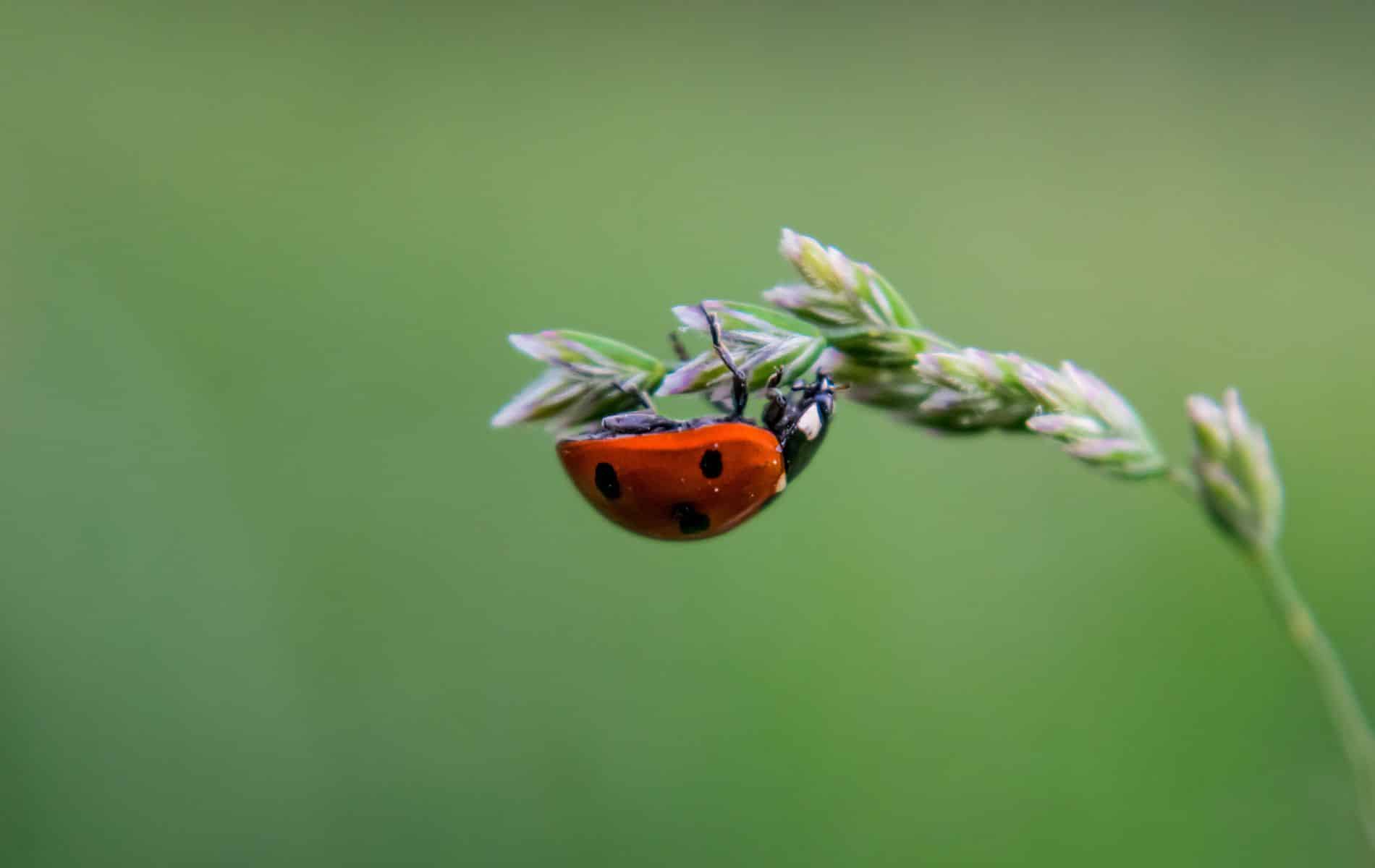The smell ensures that aphids eat less and their population declines. Researchers say this could be an environmentally friendly way to protect crops from pests Pennsylvania State University.
With its red skin and black spots, the beetle is one of the most fascinating insects on this earth. But they are not peaceful at all. Immediately after hatching from their eggs, the voracious predators hunt for aphids, which they then catch with their jaws and suck them out. This is about 80 to 120 times a day. The predatory desire of ladybugs is annoying to aphids, but ideal for agriculture. Aphids can cause significant damage to crops. Which so far we have been able to solve mainly by using harmful pesticides, which cause all kinds of health problems.
After all, it is becoming increasingly clear how unhealthy exposure to pesticides can be. For example, the controversial agricultural toxicant glyphosate is linked to an increased risk of several types of cancer and Parkinson’s disease. A study on soy farms in Brazil discovered a link between pesticides and leukemia in children. The relatively unknown insecticide chloramquat does not appear to be harmful. Some animal studies show that chlormequat can affect the reproductive system, disrupt fetal growth and alter metabolism. Agricultural toxins are not just a problem for humans. It causes birds to lose their posture and damages bees’ brains to the point that they can no longer walk upright. Enough reasons to consider alternatives.
Smell in the wind tunnel
American researchers discovered that one of these alternatives may be the smell of beetles Pennsylvania State University. They studied the effect of the Asian multicolored beetle’s scent on the green peach aphid, a common pest of many crops. In this experiment, they placed plants containing aphids in a wind tunnel, where they diffused the beetles’ scent using a diffuser. They then measured the behavior and performance of the aphids, such as the amount of food they eat, their movement between plants, and the size of their numbers.
eat less
They discovered that when aphids smelled the beetle’s scent, they ate less of the plants they were on and did not spread to other plants. Something they usually do. This is a surprising result, because other studies have shown that aphids move more when they come into contact with physical stimuli from predators, such as touch or vibration. Researchers suspect that aphids interpret the beetle’s scent as a signal of danger, but they cannot pinpoint exactly where the danger is coming from and how they can escape it. So the aphids will stay on their plant to be on the safe side and eat less so they are less noticeable.
Population size
Ladybug odor also had an effect on aphid population size. After two weeks, the number of aphids exposed to the odor was 25% fewer than the number of aphids that did not smell the odor. This may be because aphids ate less food and were therefore able to produce fewer offspring. “This study shows that beetle scent can be a powerful tool for ecological agriculture,” said Jessica Kansman, lead author of the study. “It can protect plants from aphids without disturbing the aphids’ natural enemies. In addition, it can enhance the biodiversity of the ecosystem because it does not deter other insects. This is a very good result,” adds colleague Sarah Hermann. “Using knowledge of basic ecological interactions that already exist, “We can work with nature, not against it.”
The smell or the animal itself?
But if ladybug scent works so well against aphid infestation, why not the animals themselves? As a home garden treatment, you can actually order beetle larvae from different suppliers to release in your garden or with your houseplants. But soon the larvae grow large and the insects can fly away. In addition, the beetle has a natural enemy: the ant. Ants protect aphids because they secrete sugar, which ants love. Once ants are in the area, controlling aphids with beetles becomes more difficult. These factors make it difficult to use animals on a large scale, such as in agriculture.
The researchers want to conduct more research on the beetle’s scent in the future and how it can be applied in practice. For example, they want to know whether the scent also works against other types of aphids or other pests, and whether the scent affects plant growth or soil quality. They hope their research will contribute to more sustainable and greener agriculture. Because, says Herman, “In an age when threats to the environment are greater than ever, our commitment to these sustainable, nature-inspired practices is not only promising, but essential to the health and future of our planet.”

“Lifelong zombie fanatic. Hardcore web practitioner. Thinker. Music expert. Unapologetic pop culture scholar.”








